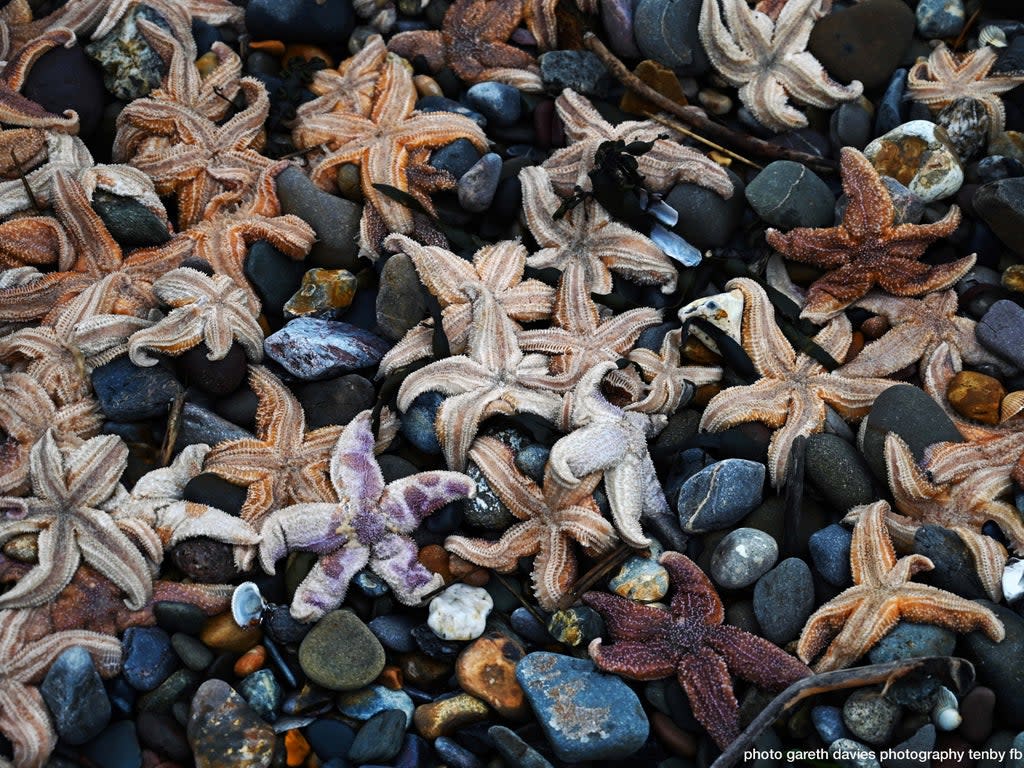Thousands of dead starfish wash ashore in Pembrokeshire after stormy weather hits Wales coast

Thousands of dead starfish have become stranded in Pembrokeshire after stormy weather battered the Welsh coast.
Various local photographers have captured images of the grim phenomenon in recent days, with pictures showing the creatures filling shallow rock pools and lining sandy beaches.
“I have never seen something like this before,” Giles Davies, an amateur nature photographer from Cosheston was quoted as saying by BBC News. “It's really sad to just see that in nature, because you're looking at deaths in the thousands of one species.”
Strandings are regular occurrences in Wales and other parts of the UK, and experts believe they are typically caused by unsettled weather.
“We do get strandings like this reported around the coast of Wales when there’s stormy weather, especially when that coincides with big tides – and we’ve had both of those in the last few days,” Adam Cooper, a senior marine adviser at Natural Resources Wales, told ITV News.
A ranger from Pembrokeshire Coast National Park Authority also told the broadcaster that stormy weather was likely the cause of the incident.
“These starfish breed when there’s lots of feed about so they’re feeding on clams and mussels," Chris Taylor said.
“Sadly what’s happened here, I think, is that we’ve had a low tide, lots of stormy weather and that has brought a lot of these starfish ashore and sadly these starfish will die.
“But there will be lots that survive, and they will be the next starfish that go on and breed, and will be hardier and better adapted to this environment.”
Very sad seeing so many dead starfish on Coppet Hall beach, Saundersfoot today. Coming ashore on todays high tide, click photos to open @GDPTenby . 'A natural event' Natural Resources Wales have previously stated.@ThePhotoHour @BBCWalesNews @ITVWales pic.twitter.com/p0K9IhhbI5
— Gareth Davies Photog (@GDPTenby) January 3, 2022
It comes after the Met Office issued yellow weather warnings for fast-moving thunderstorms and heavy rainfall in southern Wales and England, with a forecast of gusts of up to 50mph in some places.
Such stranding events are not uncommon on UK beaches, but those on a large scale are more unusual – with one event in Inverness making headlines last November in the wake of Storm Arwen.
Following another of the UK’s largest mass starfish strandings, in Ramsgate, on the Kent coast, in 2018, Andrew Cabrinovic, the Natural History Museum's curator of echinoderms, sought to reassure the public that, although a distressing sight, such events are most often “not a cause for huge concern”.


